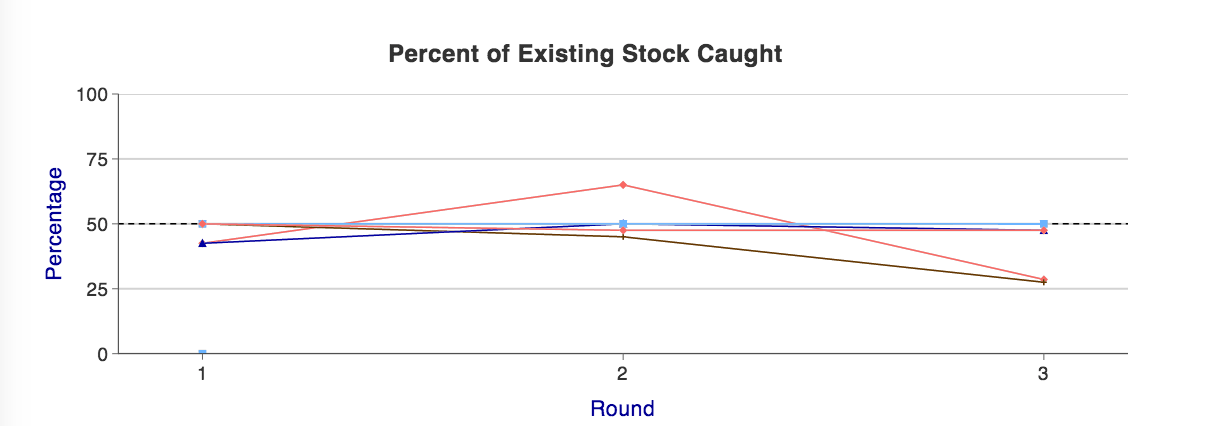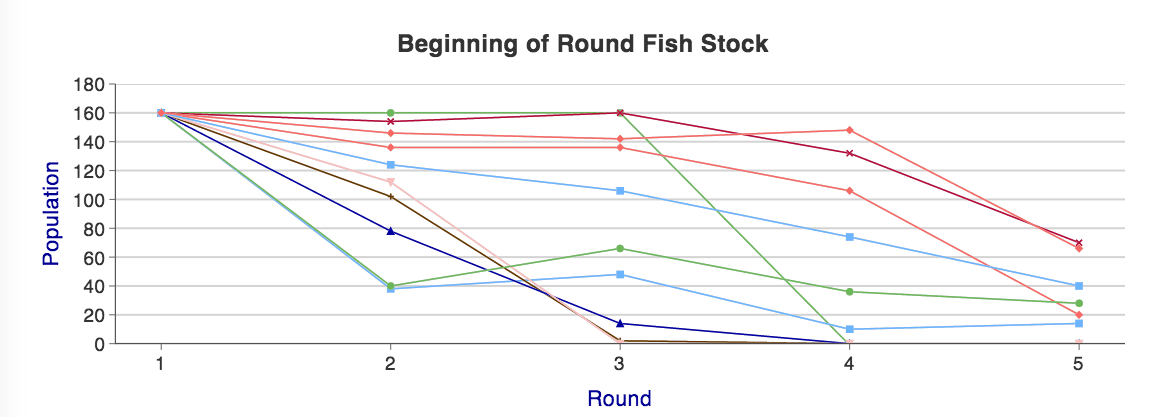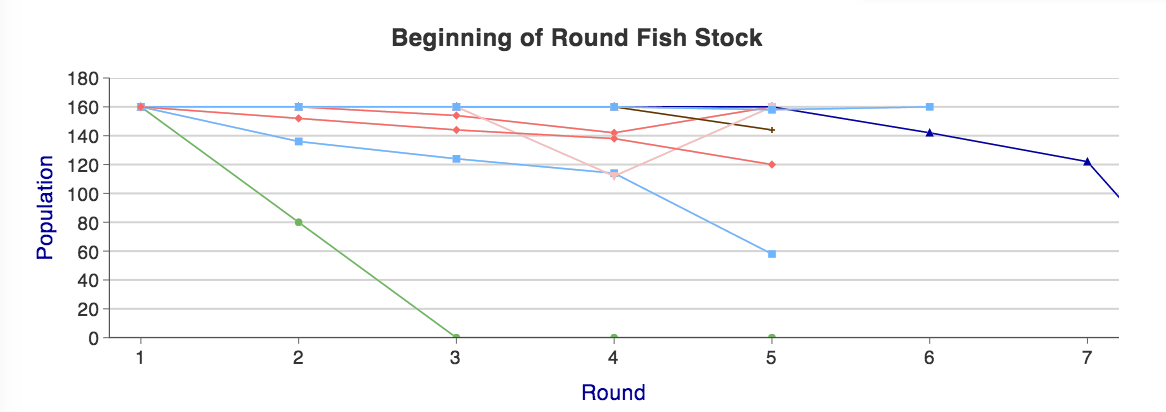After the recent RMU Teaching Workshop, I road tripped over to Penn State with the amiable and generous Jadrian Wooten. I had a blast. We talked economics and life and he introduced me to Primanti Brothers which was delicious (the off-menu “When Pigs Fly” sandwich was my kind of blue collar food).
On the following Monday we ran three versions of the “Commons: Fishery” game which went really well. Note: I’m only presenting a subset of results as there were many students.
Version 1: N=1. The initial stock of fish is 40 and the fish stock doubles at the end of each round. The goal of this parameterization was two-fold. First, I wanted students to be familiar with the replacement rate and what that implied about sustainable catch each round. Second, I wanted a baseline for comparison when property rights are not so clean. From the results below you can see many students tracked well with the sustainable rate of resource consumption.

Version 2: N=4. The initial stock of fish is 160 and the fish stock doubles at the end of each round. While students have now been familiar with the replacement rate the incentives are clear, “I drink your milkshake!“

After they participated in Version 1 and Version 2, I asked the following question on our free-text response, “Compare the second game, when you fished a common sea (with three others), to the first game when you fished alone. Explain any differences in incentives across those two games and whether those differences affected how you played.” Here are some student responses:
“The first game I fished sustainably, in the second – I tried sustainability at first but soon found I was competing to be able to get as many fish as I wanted and supply quickly ran out.”
“Property Rights, first one you have property rights over your fish so they are protected no one else is going to take them. Second time there are no property rights so you have to guarantee that if you try to conserve fish that they will not be taken by another fisher.”
“When you fish in your own private pool, you’re the only one setting the limit as to how much you want to catch. Whereas when you’re in a pool with 3 other players, there is a lack of communication in the sense that some people have no limit and just go wild. When there is no communication, strategy just becomes irrelevant, and you’re praying to god that the people you’re paired with aren’t idiots and consume the whole pool in a frenzy to get the top score.”
Version 3: Same as version 2. This time with chat and indefinite repetition to allow them to experience a situation with more realism: neighbors can talk to each other, there are long time horizons and reputation effects, etc.

Asking the students about about why communication mattered, students responded that they could coordinate with each other. This kind of coordination on a set of rules for fishing matters even if communication is cheap talk. Also, students got a laugh when I asked them to recall, “What’s the nastiest thing someone said to you over chat?” As noted in the classic paper, “Covenants with and without a Sword: Self-Governance is Possible”,
Jadrian noted that 61% of students found MobLab added value to the lecture, 30% were neutral, and 9% didn’t like it. But, what I found really interesting was his comments after talking to his good students, “they enjoyed getting to see the results of what we talked about rather than just thinking about how it would happen.” This is an important point: MobLab isn’t just a useful tool for engaging students that are difficult to engage in standard lecture. MobLab engages good students because it showcases economics as an empirical science and not just a bunch of theories.
I am hopeful the game made the incentive problems clearer to them but also gave them a sense that incentives are not destiny. Cheap talk can help construct rules and verbal reprisals can act as a price on the externality we impose on others. Economics is a rich science that can help them explore whatever issues they’re passionate about when they “look out the window.” Many thanks to Jadrian for entrusting his class to me.
Would you like to learn more about MobLab economics games? Get in touch with our team. Schedule a one-on-one demo meeting for your personalized tour!

